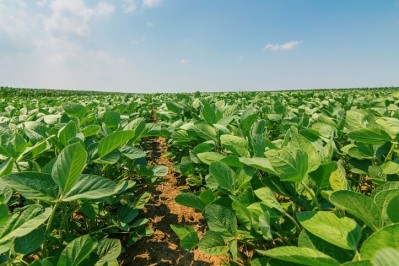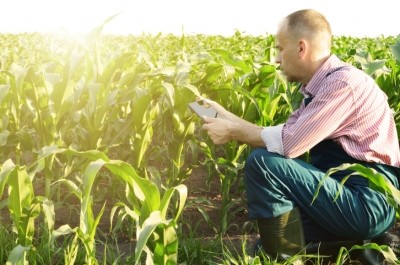Gathering industry insight next step for OTA’s voluntary organic checkoff

As part of the ongoing effort toward establishing a voluntary checkoff-like program, currently called GRO Organic, the Organic Trade Association (OTA) has been asking for input and feedback from members of the organic industry on how to design and implement such a program. The group is collecting “big ideas” for the next six months or through the end of April.
The goals of the checkoff program are to promote the organic brand, generate funds for research to address questions facing the organic industry, expand organic agriculture in the US and provide consumer education, the association said.
The association is hoping to hear from members of the organic industry from across the supply chain, from feed crop producers through retailers, who would be interested in participating in the program, said Laura Batcha, executive director and CEO of OTA. “The nature of the voluntary program is such that you don’t mandate everybody pay in, so we really want to hear about what kind of structure, what would it take to say, ‘Yes, I want to participate’?”
“In addition to that, we want input from NGO groups that carry out activities and do work that benefits organic long term … if they’re involved in research or outreach to growers on the ground, what are their ideas about how to build the best ROI for the investment for the industry?” she told FeedNavigator.
“And, there were a number of groups in the USDA commentary around the mandatory checkoff that did not support that proposal but did point to a voluntary program being something that they [considered a] better approach to take – this is the opportunity for those folks to come back to the table with constructive ideas,” she added.
Submissions will be reviewed by a steering committee and, once the window has closed, summarized and shared, she said.
Commodity checkoffs
In the US, a commodity checkoff program collects funds through a specified mechanism from producers working with a particular agricultural commodity. That money can then be used to promote or support research for the commodity.
Checkoff background
The OTA initially started work on creating a checkoff for the organic industry through the US Department of Agriculture’s process, according to the organization. An application for the checkoff program was submitted in 2015.
A public comment period regarding the proposed program opened in January of 2017, however, the USDA canceled the rulemaking process in May, the OTA reported. The process was stopped without the opportunity to bring the checkoff vote to the industry.
The OTA announced in September that it would be working to create a voluntary checkoff program to address the need for research, education and promotion within the organic industry.
Needs of the organic industry
The proposed voluntary checkoff program is set to focus on supporting the organic industry as a whole, rather than specific products, said Batcha.
“It speaks to an underlying philosophy that we have about this whole program and the idea organic is a brand that everyone in the value chain shares,” she said of the organic label. “Everybody in the industry has that branding on them and that’s what the consumer relates to.”
The organic industry partners with the government for regulation and to oversee requirements for the brand, but brands also need help with industry promotion, building long-term relationships and that’s not a role for USDA, she said.
Additionally, as producers throughout the organic industry share the same label, a “pinch” in one area affects others, she said.
“If there is a major technical agronomic hurdle that is limiting the ability of row crop farmers to grow enough livestock feed to prevent fraudulent actors from entering the market, then solving that problem is actually something that everybody who has that brand on their product benefits from,” Batcha said. “If it’s a pressing enough issue and it’s commodity specific, it’s an investment that everybody benefits from because it’s about the market as a whole, long-term.”
Collecting ideas and input
In addition to requests for ideas from industry members and stakeholders regarding how to design the support program, a series of questions has been set.
Questions posed to industry members and stakeholders cover areas including how to get more members to participate and how to encourage producers of different sizes and at different parts of the value chain to take part along with questions regarding what sort of funding system should be used.
Other questions cover the decision-making process that could or should be used by the program, naming the system, areas for future research and how to establish short- and long-term priorities.
Along with the request for ideas and input, the association also has established a series of initial priorities including promotion of the organic label, consumer research, supporting additional organic extension agents and soil and climate research, the OTA reported.
Outreach and consumer education efforts are never completed, Batcha added, as there could always be new consumers interested in organic products. “That’s something that the whole industry needs to set up for a perpetual investment.”











